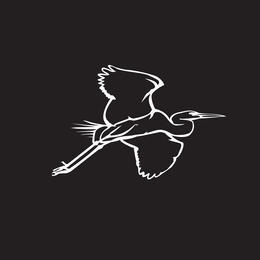DURHAM, N.C. —Warblers, sapsuckers, sparrows, and wrens are being spotted all over the state, marking the peak of fall bird migration and the return of the eighth annual North Carolina Native Plants Week, taking place Oct. 20-26. Help us spread the word by using this social media toolkit.
Fall is the best time to plant native, which makes this the perfect time of year to celebrate native plants and encourage everyone to make their yards and gardens bird-friendly. Thanks to several state and local policies, more folks than ever are learning about the value of native plants and incorporating them in their yards and parks.
“Our chapters have been our greatest native plant advocates, dedicating years of their time working with neighbors, local council members, and state officials,” Audubon North Carolina Executive Director Curtis Smalling said. “That work has paid off in the form of successful yard-certification programs and policies promoting native plants.”
Most recently, the Greensboro City Council unanimously passed a policy that will require the use of native plants on city-owned and maintained property and eliminate the use of invasive plants. Additionally, the Winston-Salem City Council, approved amendments to its ordinances that would allow residents greater freedom to create “natural areas” in their yards, which are areas that are made up primarily by plants that are native to the region.
Combined, these policies make it easier for local officials and homeowners to make their landscapes more attractive to not only birds, but the insects and pollinators they depend on for food.
We also saw momentum for native plants build at the state level as Gov. Roy Cooper announced a new executive order requiring the use of native plants on all landscaping for future state-owned projects, part of a sweeping commitment to protect and restore millions of acres of forest and wetlands. This comes in addition to a state law passed last year that requires native plants for landscaping at all state parks, roads, and historic sites.
This new suite of policies will mean more habitat and food for birds and healthier communities for people. In fact, our state’s insects and birds have co-evolved with our native plants, meaning that our fauna has adapted overtime to the resources they provide. Native plants host many times more caterpillars than invasive leaves. Without native plants, we’d have less caterpillars—an important food source for baby birds.
Native plants are also a natural climate solution as they are better adapted to our state's climate and soils—increasing their ability to absorb climate warming pollution from the atmosphere. You can help by spreading the word and increasing the number of native plants in your yard or garden.
Media Contact: Brittany Salmons, brittany.salmons@audubon.org
About Audubon North Carolina
Audubon North Carolina, a state program of the National Audubon Society, has offices in Durham, Boone, Corolla, and Wilmington. Learn more at nc.audubon.org and on Twitter, Facebook, and Instagram. The National Audubon Society protects birds and the places they need, today and tomorrow. A nonprofit conservation organization since 1905, Audubon works throughout the Americas using science, advocacy, education, and on-the-ground conservation. Learn more at audubon.org and on Facebook, Twitter and Instagram @audubonsociety.




